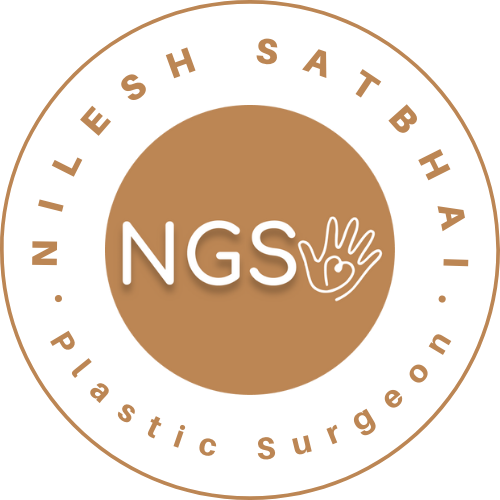A Miracle of Medical Science: India’s First Hand Transplant for Congenital Defects
In January 2023, 18-year-old Samiya Mansuri made history as the first Indian with a birth defect to receive a hand transplant. She was born with congenital hand aplasia, a rare birth defect that affects the development of a fetus’s hand. It is characterized by the absence of one or both hands. Congenital hand aplasia left Samiya Mansuri without a right hand, filling her life with challenges and difficulties. Her family tried everything to find a solution, but all of their efforts seemed to be in vain.
Then they read about Monika More, who had received a bilateral hand transplant at Gleneagles Hospitals, Mumbai, and her story gave them hope. They contacted Dr. Nilesh Satbhai, Sr. Consultant Plastic, Hand & Reconstructive Microsurgeon, at Gleneagles Hospitals, and after multiple evaluations, he concluded that Samiya was the perfect candidate for a hand transplant.
Dr. Nilesh Satbhai said, “This transplant was done for the congenital absence of hand. The medical literature does not have any reports about hand transplants for congenital absence of hand. To understand the complexity of the surgery, and to give valid consent for surgery, the patient has to be at least 18 years old.”
2 years later, on her 18th birthday on January 10th, 2023, Samiya’s name was registered for a hand transplant and miraculously, 5 days later, her family received a call about a donor’s family that had agreed to let Samiya receive their loved one’s hand.
The donor was a 52-year-old woman from Indore, and her family readily agreed to donate the hand when they heard that it could bring a new life to an 18-year-old girl. They even hired an air ambulance to transfer the medical team and the hand to Mumbai as fast as possible.
Thanks to the efforts of Dr. Nilesh Satbhai and his team, Samiya underwent a successful 12-hour surgery to receive the donor hand.
About the surgery, Dr. Nilesh Satbhai said, “Samiya’s hand was not completely developed. Her forearm, wrist, and hand were severely deficient. She had very small finger nubbins. Owing to the deformity, in her right hand, all the blood vessels, muscles, bones, and nerves were smaller than usual. Hence the surgical plan was much different and complex as compared to transplants after accidental amputations. We preserved all the available functions of the elbow but repaired the blood vessels and nerves above the elbow level to match their size.”
The surgery involved connecting nerves and blood vessels to the donated arm, and it will take around 9 to 12 months for Samiya to have a fully functional right hand. The rehabilitation program has begun and will progress as the nerves recover. This is the first unilateral hand transplant in India and also the first transplant done for congenital hand aplasia, making it a landmark achievement in the field of medical science.
The success of this surgery is a significant milestone in the field of transplant surgery in India. Until now, hand transplants in India have only been performed on people who lost their hands due to accidents or injuries. This transplant marks a new era in transplant surgery, showing that it is possible to transplant a hand onto a person with a birth defect. This groundbreaking surgery not only offers hope to those with congenital defects but also sets a precedent for future transplant surgeries in India. The success of this transplant is a tribute to the medical community’s dedication to finding innovative solutions to complex medical problems.
Dr. Nilesh Satbhai, the surgeon who led the transplant team, expressed his excitement and interest in seeing the outcome of this transplant and watching Samiya Mansuri overcome the rehab challenges.
Samiya’s story is a testament to the resilience of the human spirit, and her determination to overcome her birth defect is inspiring. With her new hand, Samiya can look forward to a better quality of life, and the possibilities that come with having two hands are endless.





